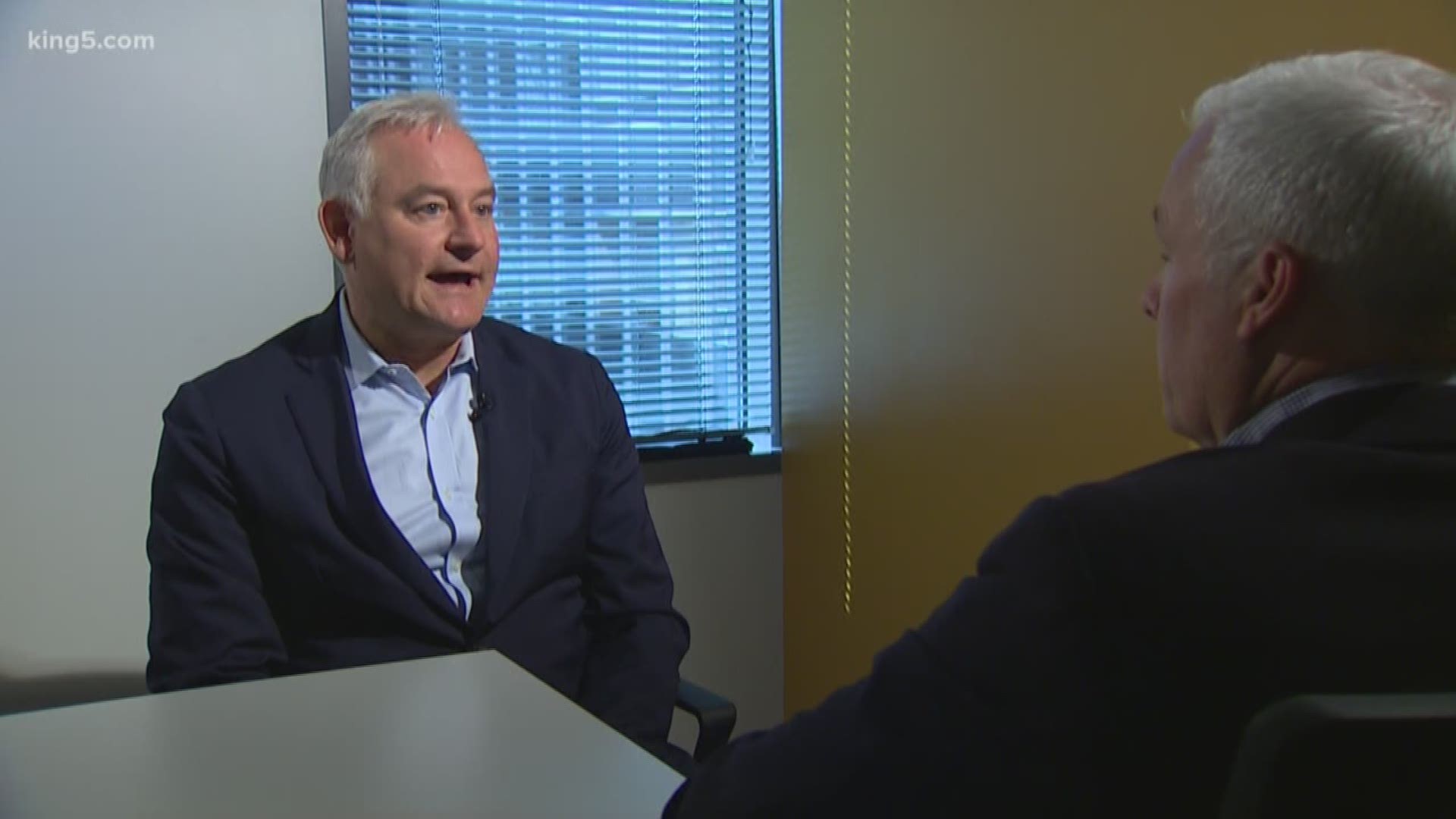Editor’s Note: This updated story clarifies information about the “special privileges” that one Thurston County Conservation District Supervisor was alleged to have received. In its March 26, 2019 “Findings of Fact” decision, the Washington State Conservation Commission did not sustain the “special privileges” complaint, but it did find the supervisors in violation of four other counts.
In the Thurston County Conservation District offices there were so many problems that it took an investigator 61 pages to spell them out in a report to the state commission with oversight of Washington’s 45 conservation districts.
That report prompted the Washington State Conservation Commission in February to remove two board supervisors from the Thurston County district after finding they abused staff and mishandled public funds.
The state board did not sustain a complaint that one of the commissioners sought “special privileges” – conservation district money to pay for equipment on his own dairy farm.
Both supervisors denied the allegations in the report, which included 11 separate complaints.
However, the board’s Findings of Fact upheld four complaints that prompted the board to eject both supervisors in February of this year.
Yet, when it came time to replace those elected supervisors at the ballot box, most of Thurston County’s 182,000 eligible voters were left in the dark. Only 1,080 voters, less than 1 percent of registered voters, cast a ballot in the March election.
That’s because, like most conservation districts in Washington, ballots are issued by request only. Thurston property owners, who collectively fund the conversation district with $1 million in taxes yearly, must contact the district and ask for a ballot if they want to vote.
“That is categorically ridiculous. What is the purpose of a made-up election if you are not going to be serious about it?” asked state Sen. Reuven Carlyle (D-Seattle).
Carlyle said the ballot-by-request-only policy is just one example of longstanding problems with Washington’s nearly 2,000 “special purpose” districts, created by state lawmakers over the last century.
He’s proposing changes in state law in the 2020 legislative session.
“It’s really gotten to the point where the legislature creates (special purpose districts) without question, and almost recklessly, without the kind of transparency, oversight and accountability that you would expect,” Carlyle said.
In an ongoing series, "Money down the drain," the KING 5 Investigators found even more egregious examples of tax money collected with little oversight or voter input. One story revealed that the commissioner of King County Drainage District No. 5 in Enumclaw has not held an election in 30 years. State law allows Allan “Ben” Thomas, a longtime dairy farmer, to run the district’s own elections and bypass the county election's office.
“We haven’t had anybody run for probably about 30 years,” Thomas said when asked when the last election took place.
Police reports provided by Enumclaw police through a public records request show that up to $400,000 in taxes collected for drainage district services ended up in his private bank account.
Thomas denied that he has misspent taxpayer money, which is supposed to be used to dredge and maintain 18 miles of open trenches, including five that funnel runoff water from farm fields into a nearby river.
Because there hadn’t been an election in decades, most property owners weren’t even aware that drainage district 5 existed, or that they paid taxes for it.
The King County prosecutor is considering charges against Thomas, and County Councilmember Reagan Dunn asked the FBI to open a public corruption case five days after our story aired.
Created by the state Legislature, a special purpose district has taxing authority and is charged with providing a specific service for a town or community: things like fire, sewer, water, school, flood-control and public parks.
Managed by elected officeholders, these districts may not always have the same visibility and oversight as traditional city or county governments.
Carlyle said he asked state Auditor Pat McCarthy to identify and report back on some of the common problems her office has seen with special purpose districts.
“I don’t want to just go one by one. I want to have the audit step back and look at a system's level,” Carlyle said.
The auditor’s office already has some information pulled together. Information released this month to KING 5 shows that approximately 130 governments per year do not respond to the auditor’s office requests to provide financial information, as required by law.
Forty-seven of those governments, most of them special purpose districts, have not been audited in four years or more – in violation of state requirements.
“That is completely unacceptable. We should stop their flow of money instantly,” said Carlyle.
Carlyle said he plans to propose legislation in the 2020 session that could roll some services that districts provide into larger governments that are more answerable to voters.
“In some ways, county (governments) are the right authorities, because they have elections and people know about them, and they pay attention,” Carlyle said, pointing out that both county council members and executives face the voters every four years without fail.
Follow Chris Ingalls on Twitter @CJIngalls.

